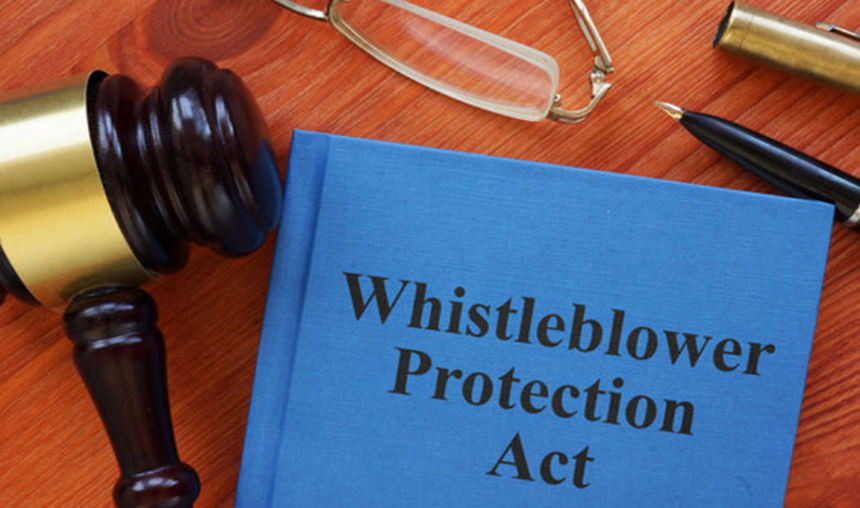Exposing fraud, misconduct, or unethical activities requires courage and a strong understanding of legal rights. Whistleblowers often face challenges when reporting wrongdoing, making professional legal guidance essential. Seeking assistance from an experienced attorney ensures that every step is handled correctly.
A whistleblower lawyer plays a key role in assessing claims, gathering evidence, and ensuring confidentiality. Legal professionals help determine whether a case qualifies under whistleblower protection laws. Knowing how the process works makes it easier to move forward with confidence.
Case Evaluation and Initial Consultation
The first step in working with an attorney involves reviewing the case details. Legal professionals assess the information provided during an initial consultation, ensuring the claim meets the necessary legal standards. Individuals receive clear guidance on whether their case qualifies for protection and the potential next steps. Confidentiality remains a priority, preventing unnecessary risks.
After determining the validity of a claim, attorneys develop a strategy. Proper documentation strengthens the case, increasing the likelihood of a successful outcome. Legal professionals also provide insights into deadlines and filing requirements, ensuring every aspect aligns with applicable laws.
Legal Protections and Individual Rights
Whistleblower laws exist to protect individuals from workplace retaliation. Attorneys help clients understand these legal safeguards, ensuring they can proceed without fear of losing their jobs or facing unfair treatment. In some cases, financial compensation may be available for those who report fraud involving government funds.
- Certain laws provide rewards based on the amount recovered through whistleblower claims.
- Retaliation protections prevent wrongful termination, demotions, or workplace harassment.
- Attorneys ensure all filings meet deadlines and compliance requirements
Gathering and Presenting Evidence
Substantial evidence is essential for building a strong case. Attorneys help collect and organize relevant materials such as emails, financial records, and witness statements. Well-documented claims have a higher chance of success, so it’s crucial to present information clearly and effectively.
Legal professionals also ensure that all documentation follows legal guidelines. Even minor mistakes can delay proceedings or weaken a case. Individuals can confidently move forward with expert assistance, knowing their claim is well-prepared.
Filing the Claim and Legal Procedures
Once all evidence is gathered, attorneys handle the formal filing process. Each case must follow specific protocols based on the governing laws and the agency receiving the report. Accuracy and timeliness are essential, as any errors may cause unnecessary complications.
Legal representatives also communicate with authorities on behalf of clients. If additional testimony or supporting documents are required, attorneys provide step-by-step guidance. Having support ensures the process runs smoothly and efficiently.
Finding the Right Legal Support for Whistleblower Cases
Selecting a knowledgeable attorney is essential for successfully navigating whistleblower cases. Skilled professionals ensure that claims are handled correctly, evidence is properly presented, and individuals receive the protection they deserve. With strong representation, whistleblowers can report misconduct while minimizing personal and professional risks.
A trusted law firm with experience in whistleblower cases provides valuable guidance throughout the process. Dedicated attorneys help individuals understand their rights and pursue justice from initial case evaluations to courtroom representation. Working with legal professionals specializing in this area increases the likelihood of a favorable outcome, offering peace of mind and legal security.
Every whistleblower case is unique, with different outcomes based on evidence and applicable laws. A whistleblower lawyer helps clients understand potential outcomes and ensures they remain informed at every stage. Fees may be deducted from the final amount if compensation is awarded. Regardless of the result, professional support increases the chances of a fair and just process.
Content Quality Form
Content Proof checked by: Poulomee
Relevancy:
1. Related to the client’s products or services (Yes)
2. No Review type content (Yes)
3. Relevant to the target link included in the article (Yes)
Topic:
2. Content should not be overly promotional about the brand’s product or service (Yes)
3. Quality (Yes)
4. Written in US English (Yes)
5. No grammar, spelling errors, run-on sentences, etc. (Yes)
6. Minimum 500 words (Yes)
7. Tense, POV maintained across the content (Yes)
Links:
1. Link is geo-focused; content should be related to that geo. Ex: if the link is about a specific location, the content should also be related to that location (Yes)
2. Link is not out of place with the content (Yes)
3. Link should appear as early in the content as possible (Yes)
4. Only include the 1 brand link provided (i.e. do not add additional links to the client’s other pages or homepage unless specified) (Yes)
Anchor Text:
1. Matches exactly with what is provided (pay attention to intentional misspellings and upper/lowercase) (Yes)
2. Flows naturally into the sentence and not be awkwardly stuffed in other links (Yes)
3. Included at least 1 outbound relevant link to non-competitor sites (Yes)
4. Included at least 1 internal relevant link within the shortlisted site (Yes)
5. Anchor text is relevant to the page it’s linking to (Yes)
Disclosure
1. Not written as if the client wrote it, do not use terms like “we” and “us” (Yes)
2. Relevant Image included (No)















